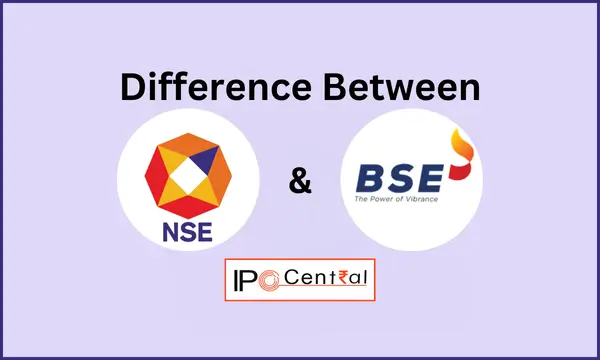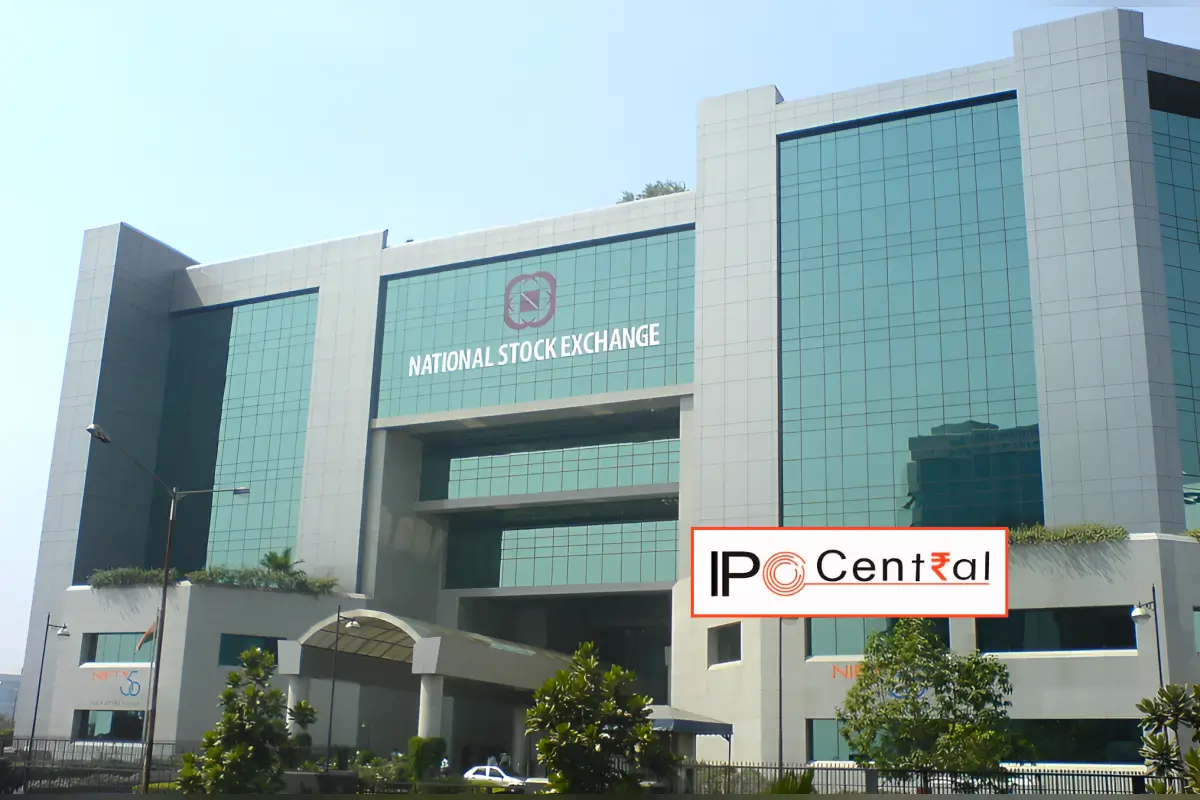NSE and BSE are the two most prominent stock exchanges in India, and understanding the differences between NSE and BSE is crucial for investors and traders alike. They are not only the largest stock exchanges in India but also rank among the top globally.
Despite operating within the same industry, it would be a significant oversight to consider both companies as alike. They are as different as chalk and cheese. This article will delve into the features, history, and distinctions between the National Stock Exchange (NSE) and the Bombay Stock Exchange (BSE). For traders and investors seeking a quick understanding of how these differences influence their activities, feel free to jump to the conclusion at the end of this article.

What are NSE and BSE in the Stock Market?
For those unfamiliar, NSE refers to the National Stock Exchange, while BSE stands for the Bombay Stock Exchange. It’s important to note that the name “Bombay” is still used despite the city being officially renamed Mumbai. However, there is much more to both BSE and NSE than just their acronyms, and we will explore their features and significance further in this article.
History of BSE
Established in 1875, BSE is the oldest stock exchange in Asia, originating from informal trading by stockbrokers under banyan trees in Mumbai. It was formally organized as “The Native Share & Stock Brokers Association” and later recognized as the primary stock exchange in India under the Securities Contract Regulation Act of 1956. Transitioning from a paper-based system to electronic trading in 1995 marked a significant modernization for the BSE. Additionally, it introduced the SENSEX index in 1986, which tracks 30 of the largest and most liquid stocks on the exchange, reflecting the growth and dynamism of India’s capital markets.
History of NSE
The National Stock Exchange of India was established in 1992 and began operations in 1994. It was recognized by the Securities and Exchange Board of India (SEBI) shortly after its incorporation. The NSE is notable for being the first fully electronic stock exchange in India, introducing a screen-based trading system that enhanced market accessibility and efficiency.
Over the years, the NSE has expanded its product offerings significantly. It launched the NIFTY 50 index in 1996, which tracks 50 major stocks across various sectors. Additionally, it has dominated the equity derivatives market, capturing over 90% market share in this segment. The exchange has also introduced various financial instruments, including derivatives and exchange-traded funds, further solidifying its position as a leading financial platform in India.
What is the Difference Between NSE and BSE – Key Statistics
| NSE | BSE | |
| Year of Establishment | 1992 | 1875 |
| Number of companies listed*** | 2,644 | 5,895 |
| Market Capitalization | INR 5,75,437 crore | INR 1,09,127 crore |
| Benchmark Index | Nifty 50 | BSE Sensex |
| Global Ranking** (market capitalization of listed companies) | 7th (USD 5 trillion) | 6th (USD 5 trillion) |
| Electronic Trading | 1992 | 1995 |
| Total Income* | INR 19,177 crore | INR 1,515 crore |
| Net Profit* | INR 12,188 crore | INR 11,125 crore |
| SME platform | NSE Emerge | BSE SME |
** WFE Statistics
*** 16 January 2025
What is NSE?
As mentioned above, NSE came into being with a mandate of making securities transactions more transparent. The prevailing ecosystem in stock exchanges was quite archaic in almost every aspect. While trading was characterized by an open outcry system, it was not uncommon to see investors losing to the greed of intermediaries like brokers.
NSE changed all of this with its introduction of fully automated and dematerialized electronic trading which matched buyers and sellers. This naturally shrunk the buy-sell spreads and made the process more efficient. This is another key point in NSE and BSE difference i.e. the former started as an electronic trading platform while BSE followed much later.
To further enhance the robustness of the trading ecosystem, NSE established NSE Clearing Limited (NCL)—a wholly owned subsidiary that functions as the clearing and settlement arm of the exchange. NCL plays a critical role in ensuring the smooth functioning of the securities market by acting as a central counterparty, guaranteeing the settlement of trades and mitigating counterparty risk.
Additionally, in March 2022, NSE IFSC, the international arm of NSE at the International Financial Services Centre (IFSC) in GIFT City, became the first international exchange in the region to offer physical settlement of U.S. stocks, marking a major milestone in global market integration.
Currently, NSE conducts transactions in the wholesale debt, equity, and derivative markets.

Major Indices of NSE
- Nifty 50 Index
- Nifty Next 50 Index
- Nifty 100 Index
- Nifty 200 Index
- Nifty Total Market Index
- Nifty 500 Index
- Nifty 500 Multicap 50:25:25 Index
- Nifty500 LargeMidSmall Equal-Cap Weighted
- Nifty Midcap150 Index
- Nifty Midcap 50 Index
- Nifty Midcap Select Index
- Nifty Midcap 100 Index
- Nifty Smallcap 250 Index
- Nifty Smallcap 50 Index
- Nifty Smallcap 100 Index
- Nifty Microcap 250 Index
- Nifty LargeMidcap 250 Index
- Nifty MidSmallcap 400 Index
- India Vix Index
If You’re Interested in Nifty Indices, You’ll Want to Check Out the Following:
Checkout More Nifty Indices
Nifty Energy Index, Stocks Weightage, Share Price, ETFs in 2025
Nifty Auto Stocks List With Weightage in 2025
Nifty Pharma Stocks List With Weightage in 2025
Nifty 500 Stock List in 2025: Important Stocks
Nifty FMCG Stocks List With Weightage in 2025
Nifty MNC Stocks List With Weightage in 2025
Nifty PSE Stocks List With Weightage in 2025
Nifty Metal Stocks List With Weightage in 2025
Nifty IT Stocks List With Weightage in 2025
Nifty PE Ratio – Most Important Points You Need to Know in 2025
Nifty50 vs Nifty Next 50: Which Index is Better?
Nifty 50 Stock List in 2025: Important Stocks
NSE Market Leadership
- The largest stock exchange in India by the market capitalization of ~INR 5.75 lakh crore.
- Ranks as the 7th largest stock exchange globally.
- Fourth largest in the world based on trading volume.
- Dominates the global derivatives trading market with over 90% market share.
- The first exchange in India to implement a fully electronic trading system (1994).
- Introduced advanced settlement cycles, including a T+1 settlement cycle.
- Home to the NIFTY 50 Index, which includes 50 major stocks and represents about 63% of total market capitalization.
- Over 2,498 companies are listed, including those on its SME platform (NSE Emerge).
- More than 10.9 crore unique registered investors, indicating extensive reach among retail and institutional investors.
- Led by Ashish Kumar Chauhan, focusing on technological innovation and market expansion.
What is BSE?
BSE is not only the oldest stock exchange in India but in Asia too. As of 16 June 2025, there were 5,895 companies listed on the BSE. As of Q4 FY25 results, BSE listed companies have a total market capitalization of INR 41,47,924 crore. In its long history of over 100 years, BSE to has a lot of firsts to its name. In 1986, it launched India’s first equity index named BSE Sensex. It also pipped NSE in launching a dedicated platform for SMEs by introducing the BSE SME platform in March 2012 (here is a primer on the SME segment).
Fun Fact – It was a stock market analyst and columnist Deepak Mohoni who coined the term Sensex
BSE also has the distinction of being the first stock exchange in India to list itself in 2017.
As we noticed earlier, BSE was more of a traditional player while NSE started with a technology edge. Nevertheless, BSE has subsequently caught up with its rival.
Major Indices of BSE
- BSE SENSEX
- BSE MidCap
- BSE SmallCap
- BSE 100
- BSE 200
- BSE 500
- BSE Auto Index
- BSE FMCG Index
- BSE Healthcare Index
- BSE IT Index
BSE Market Leadership
BSE has a market capitalization of approximately INR 1,09,127 crores (as of 16 June 2025).
It is recognized as the 6th largest stock exchange globally by market capitalization of listed companies, exceeding USD 5 trillion.
Over 5,895 companies are listed, including those on its SME platform.
BSE has a significant trading volume with over 5 crore shares traded daily.
The exchange plays a crucial role in the Indian economy by facilitating capital raising and providing liquidity to investors.
BSE’s SENSEX index tracks the performance of 30 major companies, serving as a key indicator of market trends.
The exchange has embraced technology with initiatives like electronic trading and real-time data access for investors.
NSE vs BSE – Which One is Better?
This is a common question that investors and traders often grapple with in the BSE vs NSE debate. When placing an order and anticipating its execution, the investor’s focus is not on which stock exchange has a more extensive history.
As noted above, there is a massive difference between NSE and BSE stocks and the latter has an advantage in terms of absolute numbers. If you are interested in trading a stock that is listed on a specific exchange, you must trade on that particular exchange. While the BSE may have an edge in this context, it’s important to recognize that many stocks listed exclusively on the BSE tend to be illiquid.
Regular traders have also noted the difference between BSE and NSE share prices of the same security. This discrepancy is crucial for readers and investors seeking optimal prices with sufficient liquidity. In this context, the NSE generally outperforms its competitors.
Interested in NSE? More Articles For You
- NSE IPO News
- NSE IPO Update
- NSE Emerge Platform: All You Need to Know
- NSE IPO Timeline: 1 IPO, 5 SEBI Chiefs, 10 Years
- NSE Unlisted Share Price
- Is NSE Undervalued or BSE Overvalued? NSE IPO May Be the Reset Trigger!
- ASBA e Forms – Download IPO Application Form, BSE & NSE IPO Forms 2026
- Difference Between NSE and BSE – Accurate Comparison
- NSE IFSC: Important Points About Investing in US Stocks
- How Many Companies are Listed in NSE and What are NSE Series?
- NSCCL: 7 Most Important Points about NSE Clearing
- Stock Market Holidays 2026 – BSE, NSE trading holidays






































